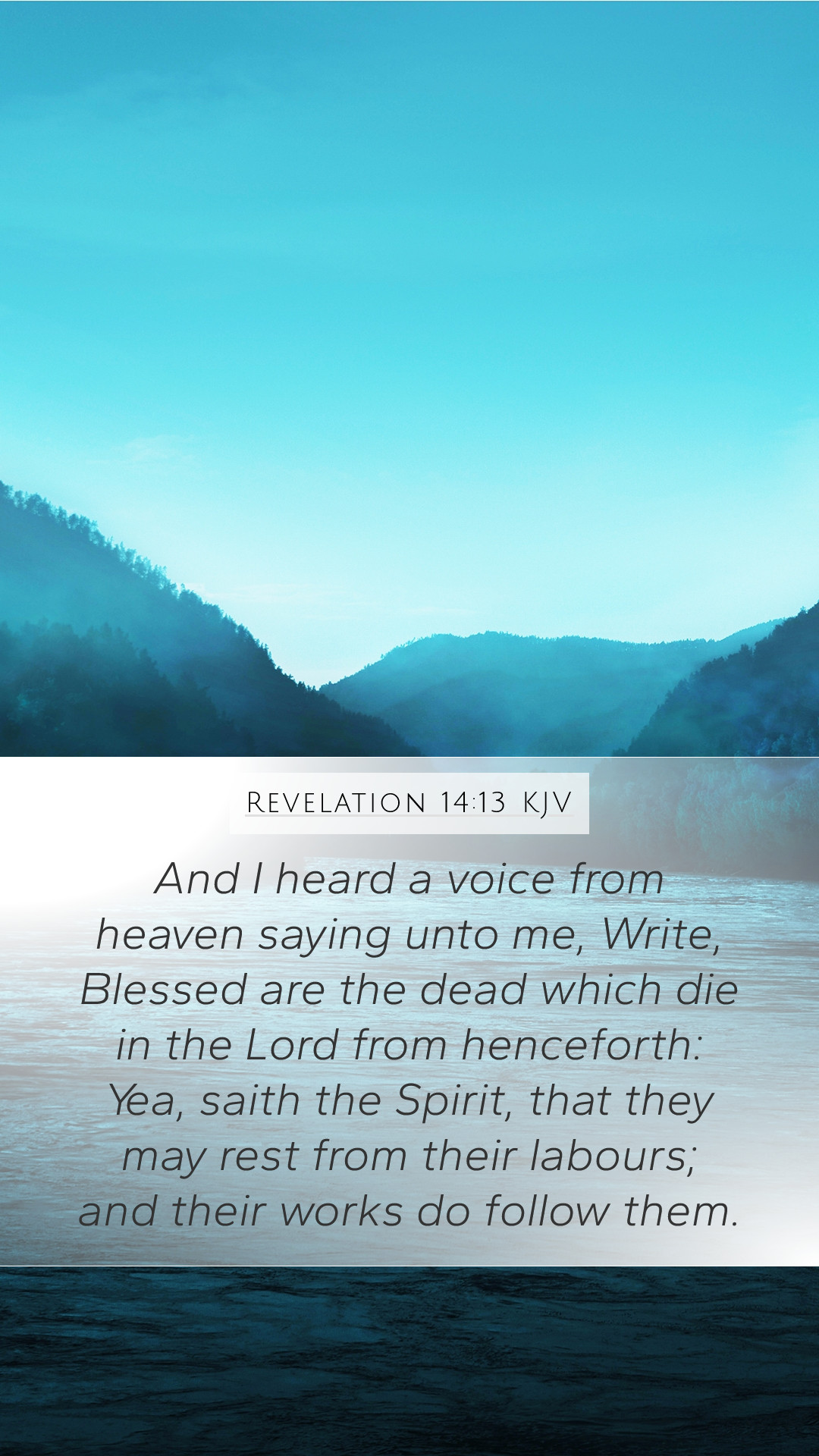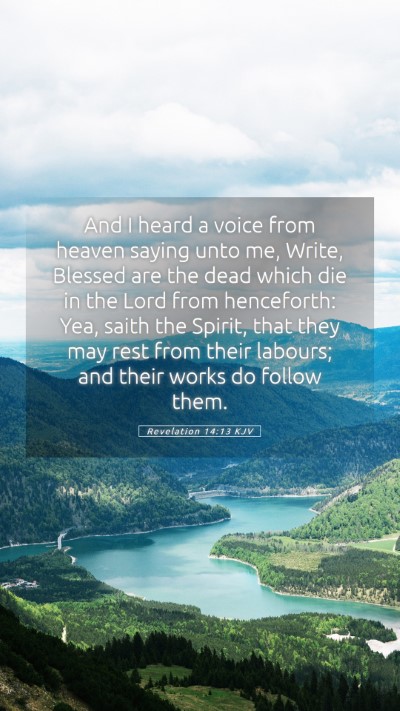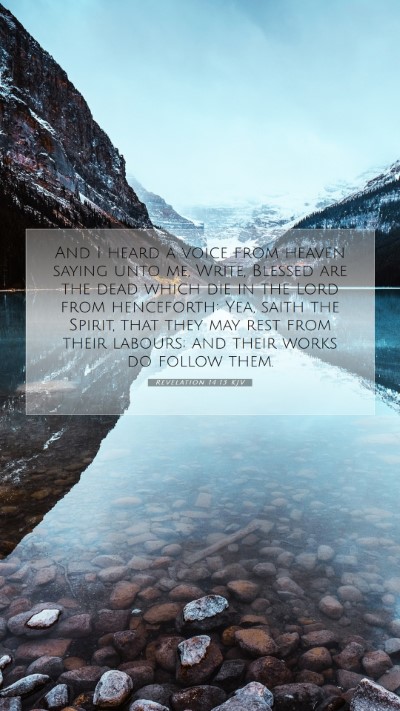Understanding Revelation 14:13
Bible Verse: Revelation 14:13 (KJV) – “And I heard a voice from heaven saying unto me, Write, Blessed are the dead which die in the Lord from henceforth: Yea, saith the Spirit, that they may rest from their labours; and their works do follow them.”
Contextual Overview
This verse is nestled within a profound portion of the Book of Revelation, which reveals the ultimate triumph of God over evil and provides encouragement to believers during times of tribulation. In this passage, the Apostle John hears a voice from heaven, signifying divine revelation and affirmation about the state of believers who have died in the faith.
Exegesis and Interpretation
Understanding Scripture is pivotal, and Revelation 14:13 reflects rich theological insights. This verse can be unpacked through several lenses, as highlighted by renowned commentators:
-
Matthew Henry
Henry emphasizes the blessedness of those who have died in faith. He interprets “blessed” as denoting a state of happiness and comfort that comes from being united with Christ. He underscores that the phrase “from henceforth” indicates a future affirmation, highlighting the profound change in the state of the dead in Christ. Henry also notes the importance of their works following them, which signifies that believers' righteous deeds remain impactful even after death.
-
Albert Barnes
Barnes elaborates on the idea of rest from labors. He interprets the rest as a cessation of earthly struggles and tribulations, providing believers solace that they have overcome the trials of their earthly existence. This rest is depicted not merely as inactivity but as a joyful presence in God's eternal kingdom. Barnes also provides commentary on the Spirit’s confirmation, suggesting that it is God who ensures the fulfillment of promises to His faithful followers.
-
Adam Clarke
Clarke dives into the assurance provided for those who face hardships, linking it to the overarching hope of resurrection and eternal reward. He further investigates the phrase “their works do follow them,” suggesting that they are rewarded based on their faithfulness and deeds, reaffirming the biblical principle of divine justice which carries over into eternity.
Meaning of the Verse
The central meaning of Revelation 14:13 encapsulates several profound truths for believers:
- Blessedness of the Faithful: The verse emphasizes a special blessing upon those who die "in the Lord," which conveys assurance and hope amidst the inevitability of death.
- Promise of Rest: The promise of rest signifies not only the end of earthly toil but also the beginning of eternal peace with God.
- Continuity of Works: The idea that works follow believers illustrates that their righteous deeds have eternal significance, contributing to their reward in heaven.
- Divine Affirmation: The voice from heaven assures that the Spirit acknowledges these truths, reinforcing the certainty of the afterlife for believers.
Application of Revelation 14:13
In practical terms, this verse offers comfort and hope to those faced with loss or contemplating their mortality. It serves as a reminder that enduring faith will culminate in eternal rest and rewards. Believers are encouraged through this passage to live righteously, trusting that their efforts and sacrifices in faith will ultimately follow them into eternity.
Cross References
This verse connects deeply with several other scriptures that reinforce its themes:
- Matthew 5:4: “Blessed are they that mourn: for they shall be comforted.”
- 1 Thessalonians 4:14: “For if we believe that Jesus died and rose again, even so them also which sleep in Jesus will God bring with him.”
- Hebrews 4:9-10: “There remaineth therefore a rest to the people of God. For he that is entered into his rest, he also hath ceased from his own works, as God did from his.”
Conclusion
In summary, Revelation 14:13 serves as a vital source of encouragement for believers, assuring them of the blessedness that accompanies a faithful life, the promise of rest after earthly trials, and the timeless impact of righteous works in God's eternal kingdom. As one studies this passage, it offers a profound opportunity for reflection on both personal faith and the greater narrative of Scripture.


